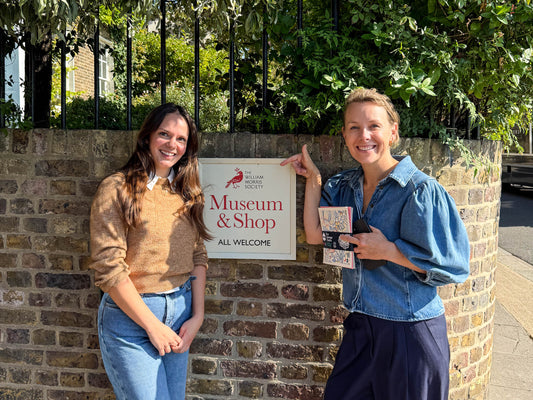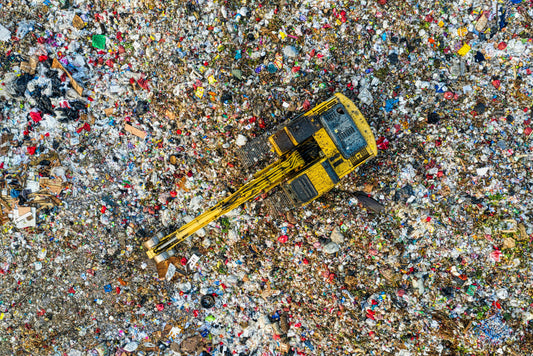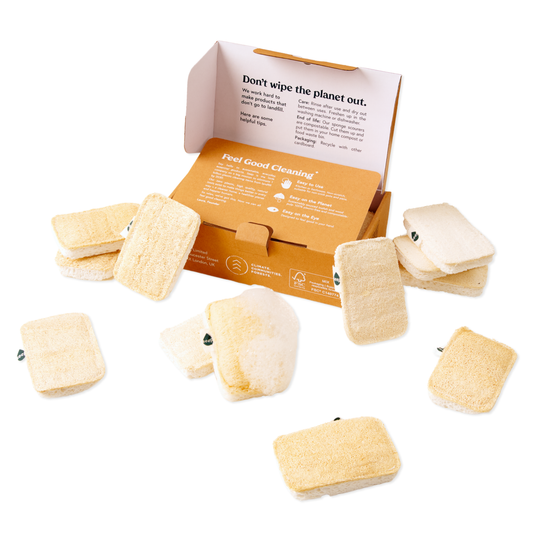
Of course, we've all heard of plastic, it's literally everywhere. But what about compostable plastics? Instead of making plastic from horrible fossil fuels, compostable plastic is derived from plants such as potatoes and corn, yum. Instead of breaking down into microplastics, the idea is that they break down into carbon dioxide, water and biomass.
However, recent research found that 60% of plastics marked as home compostable didn’t break down within 6 months. This was a huge shock for a lot of brands who use compostable plastics to reduce their impact on the environment. Some of you may know, we use compostable plastic to make our bin liners so Seep’s founder, Laura, went live on BBC 4 with Evan Davis to talk more about these findings. Here's what we have to say...
1. As a business in the UK plastics should be avoided if possible.
Reuse or reduce is the best option when it comes to plastics. As we know, plastic ends up in our oceans and pollutes the world, ruining the livelihoods of endangered species. According to our own Laura Harnett, Riverford Organic Farmers does the best job of this in the UK. With reusable boxes and compostable packaging, Riverford Organic Farmers manages to stay away from plastics and have cut their plastic use per delivery by 42% since they started five years ago. Seep’s main goal is to be able to completely avoid using any sort of plastic, and we’re hopeful that paper bin liners will be viable at some point soon in the future, but as of now, our best option is to use compostable plastic that comes with the best home compostable credentials.
2. Composting certificates need to improve in order to cover more realistic home composting conditions.
This will in return allow more people to confide in these certificates. Furthermore, it also needs to be more accessible for small businesses to afford them. Without this consumers will continue to be confused and trust will be lost.
3. Brands need to provide consumers with clear and concrete end-of-life instructions.
Seep’s aim is to improve on this topic. By renewing our packaging to make instructions more clear, as well as sharing more information concerning end-of-life instruction through emails, blog content and our website. It’s a work in progress that will make a big change.
4. Consumers need to be further encouraged and incentivised to compost at home.
Over 60% of Seep customers are composting at home, and it’s one of the best ways to reduce household waste whilst feeding your plants. However, studies have found that 97% of UK households don't compost. The main reason behind this is that people don’t have gardens, or access to a garden compost, as well as lack of time and interest. Unfortunately, the UK doesn’t put enough effort into ensuring that households have access and thus, the option of choosing to compost. More awareness needs to be brought to the issue, most people not realising that there are certain forms of compost that are easier than others, such as Bokashi composting that even allows people in flats to take part in the process. Composting at home could perhaps even save money for councils in the long run as it costs more to burn food than to compost it. We need local councils to standardise and invest in their composting infrastructure. Without a change, it’s incredibly difficult for brands to produce low impact and zero waste alternatives that are easy for the customer to dispose of.
We are trying hard at Seep to source thoughtfully, but sometimes it’s a bit challenging to do the right thing for our planet, due to economic factors. The best thing for any company, as well as an individual, is to keep learning, evolve and contribute to research like The Big Compost Experiment. We’re all working towards a better future, no matter how hard it’ll be to get there.
To learn more about composting check out our previous blogs Guide to Mastering the Home Compost with Compost Club and How to Make the Best Compost for House Plants.
Mina Skugge 23/11/2022






